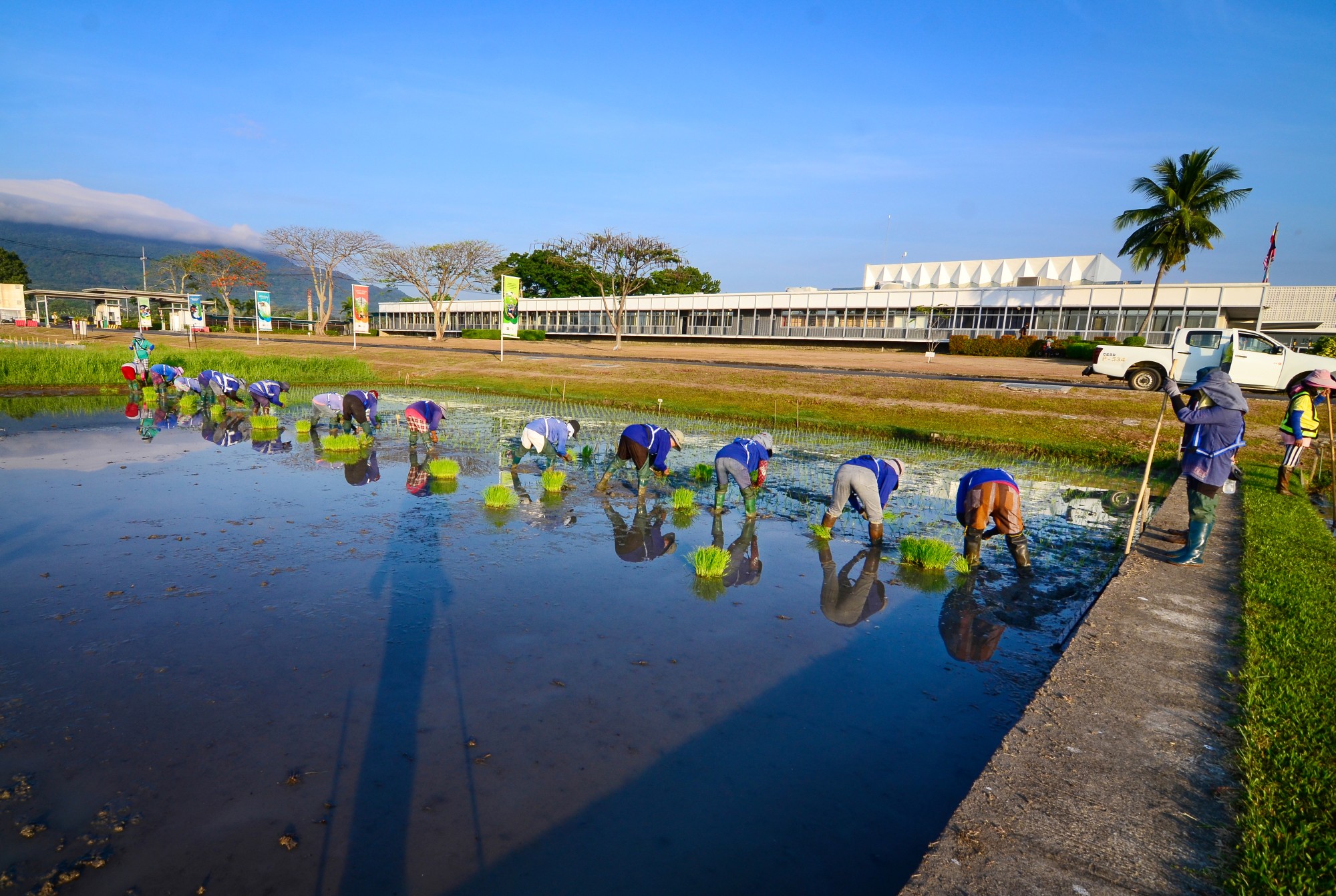AI unlocks secrets of rice yield sustainability after 50 years of continuous cropping

A new study highlights how machine learning can effectively identify key factors influencing rice yield for over five decades, emphasizing the importance of tailored management practices and varietal replacement as a response to climate change.
LOS BAÑOS, Philippines (28 August 2025) – An international research team has uncovered the key drivers of rice yield sustainability by applying artificial intelligence (AI) to the world’s longest-running triple-cropping experiment.
The study, published in Field Crops Research, provided new insights into how climate, crop varieties, and management practices influence long-term rice productivity under growing climate and food security challenges.
In this research, scientists from Gifu University, Kyoto University, Japan’s National Agriculture and Food Research Organization (NARO), the International Fertilizer Association, and IRRI analyzed over five decades of data (1968–2017) from 150 consecutive rice crops grown at the International Rice Research Institute’s Long-Term Continuous Cropping Experiment (LTCCE) in the Philippines. In the LTCCE, rice has been cultivated three times a year, during the dry, early wet, and late wet seasons, since 1968, with different nitrogen fertilizer rates and regularly introducing new varieties. The scientists combined climate records, agronomic practices, and varietal turnover with advanced machine learning techniques—an application of AI that can detect complex, hidden patterns in big data to reveal new insights into long-term crop performance.
“This is the first time machine learning has disentangled such complex, long-term interactions between climate, management, and genetics in rice systems,” said Dr. Kazuki Saito of IRRI, corresponding author. “Our results show that sustaining productivity in Asia’s rice bowls requires not just better management, but also season-tailored breeding and more frequent varietal turnover.”
Key findings include:
- Improved nitrogen fertilizer management, rapid varietal replacement, and solar radiation consistently boosted yields, but their impacts varied sharply across seasons.
- Dry season crops thrived under lower reproductive-stage temperatures, while early wet season crops benefited from warmer temperature in early plant growth stage that helped enhance soil nitrogen mineralization.
- Late wet season crops faced the toughest challenges. Using the same rice variety for prolonged period could reduce nitrogen responsiveness and intensify disease risks.
- While earlier studies attributed the yield declines of the 1970s–1980s mainly to reduced nitrogen supply, our analysis reveals that rising nighttime temperatures were also a critical factor contributing to these historical yield losses.
The study underscores three strategic opportunities for sustaining rice productivity:
- Breeding dry-season rice varieties with greater tolerance to high nighttime temperatures.
- Developing wet season varieties tolerant to humid, low-radiation conditions.
- Rotating and replacing varieties more frequently across seasons.
“By combining five decades of detailed crop and climate data with modern AI tools, we can now see much more clearly what sustains rice production,” said Dr. Tomoaki Yamaguchi, lead author and Assistant Professor at the Gifu University. “This means we can design smarter, season-specific strategies for farmers.”
Amid rising climate uncertainties, the LTCCE stands as an indispensable resource for unraveling how rice systems endure and adapt through changing conditions.
“These insights matter far beyond one experiment site,” noted Prof. Keisuke Katsura of Kyoto University, senior co-author. “They provide a blueprint for climate-resilient rice farming across Asia’s 22 million hectares of irrigated monocultures, which feed billions.”
Supported by the Government of Japan and the Ministry of Agriculture, Forestry and Fisheries (MAFF), the research demonstrates how AI and long-term experiments together can deliver actionable pathways for global food security.
About the Study
The paper, “Machine learning reveals drivers of yield sustainability in five decades of continuous rice cropping”, is published in Field Crops Research (Elsevier). Authors include Tomoaki Yamaguchi (Gifu University), Olivyn Angeles and Kazuki Saito (IRRI), Toshichika Iizumi (NARO), Achim Dobermann (IFA), and Keisuke Katsura (Kyoto University).
To learn more about the LTCCE, watch this video: https://bit.ly/4g5YND6